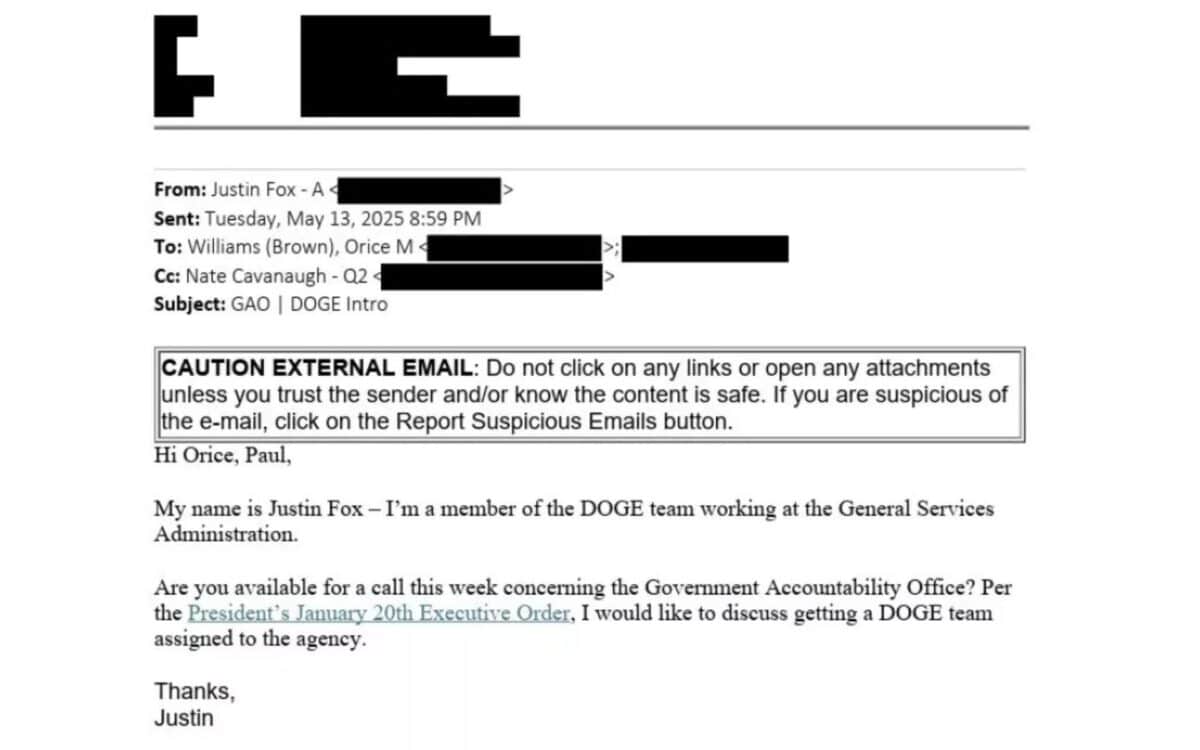The Department of Government Efficiency (DOGE), a Trump administration initiative ostensibly focused on streamlining federal operations, has quietly extended its scope beyond traditional executive agencies. In recent months, DOGE has attempted to embed staffers in nearly 40 distinct entities spanning the U.S. federal system.
These include not only Cabinet departments but also organizations with legislative ties, nonprofit groups, and institutions that receive federal funding without being formal government agencies. According to reporting by NPR, this wave of outreach has been conducted by a small group of junior operatives, raising questions about the depth and intent of DOGE’s expanding influence.
A Widening Reach Beyond Traditional Oversight
Beginning in March 2025, DOGE initiated outreach efforts to several small and independent agencies, requesting embedded access to review operations, staffing, and expenditures.
While Cabinet-level departments were initially the primary focus, recent moves have involved the Government Accountability Office (GAO), the Corporation for Public Broadcasting (CPB), and the Vera Institute of Justice.
In one case, DOGE staffer Justin Fox sent an email on May 13, requesting “to discuss getting a DOGE team assigned to the agency.” The GAO’s response was unequivocal:
Today, we sent a letter to the Acting Administrator of DOGE stating that GAO is a legislative branch agency that conducts work for the Congress – A GAO spokesperson said.
As such, we are not subject to DOGE or Executive Orders.

NPR screenshot/House Committee on Oversight and Government Reform Democrats
DOGE’s activities have also included outreach to organizations such as Legal Services Corporation, NeighborWorks America, and the Peace Corps. At Vera Institute, DOGE staff withdrew after learning the Department of Justice had terminated all of its grants.
Inexperienced Operatives at the Center of Outreach
DOGE’s work is being conducted by a small group of young operatives based at the General Services Administration (GSA).
Key names include Nate Cavanaugh, Justin Fox, Justin Aimonetti, Jack Stein, Jonathan Mendelson, and Marshall Wood. Fox, a 21-year-old student at Indiana University Bloomington, describes himself as the founder of a “cutting-edge blockchain consulting firm” on his LinkedIn profile.
Cavanaugh has been appointed to leadership roles in multiple agencies, including U.S. Institute of Peace and Interagency Council on Homelessness, where he placed the entire staff on leave.
Cavanaugh and Fox have also been involved in efforts at the National Endowment for the Humanities (NEH) and the National Labor Relations Board.
Court filings show DOGE staffers used non-governmental Microsoft email accounts to notify over 1,500 NEH grantees that their awards were canceled. They also instructed NEH leadership to eliminate approximately 75% of the staff, resulting in what a lawsuit called a
Shell of an agency that Congress established and has consistently funded.
Operational Shutdowns and Agency Resistance
DOGE’s method has at times led to agencies being effectively shut down. On March 20, Cavanaugh accompanied a newly appointed acting director to IMLS headquarters, where they assumed control of the agency’s systems.
Soon after, IMLS’s 70 staff members were placed on administrative leave.
At the Advisory Council on Historic Preservation (ACHP), a DOGE request was received on April 17, seeking to embed a team. According to Lynne Richmond, acting director of communications,
The DOGE representatives were seeking a general overview of the ACHP and its program, responsibilities, and activities. They also sought information about our budget, staff, and existing contracts.
Richmond confirmed that a DOGE team has since been detailed to ACHP and is undergoing onboarding.
On April 22, DOGE held a
Cordial meeting
with the U.S. Access Board, and further meetings are expected. That same day, DOGE scheduled meetings with the Truman Scholarship Foundation, the Denali Commission, and the Office of Navajo and Hopi Indian Relocation.
At the Peace Corps, DOGE staff met with agency leadership as recently as May 9. A spokesperson stated:
Last month, the Department of Government Efficiency (DOGE) began an assessment of Peace Corps operations. As a result, the agency has identified ways to significantly restructure its workforce, both domestically and overseas.
Staff were offered a Deferred Resignation Program, with additional reductions anticipated.
Policy Context and Legal Pushback
DOGE’s outreach is aligned with President Trump’s 2026 budget proposal, which seeks to shutter nearly two dozen small agencies and federally supported organizations. The proposal is supported by a series of executive orders that DOGE staff have used to justify their assignments.
Elon Musk, regarded as DOGE’s principal advisor, has reduced the cost-cutting goal from $2 trillion to $150 billion. Though Musk is reportedly stepping back from his role, DOGE operations continue, now led by full-time GSA staffers rather than temporary appointees.
Legal challenges have emerged in response to DOGE actions. A federal judge has temporarily blocked staffing cuts at IMLS and six other agencies, as lawsuits from unions, nonprofits, and local governments proceed through the courts.









